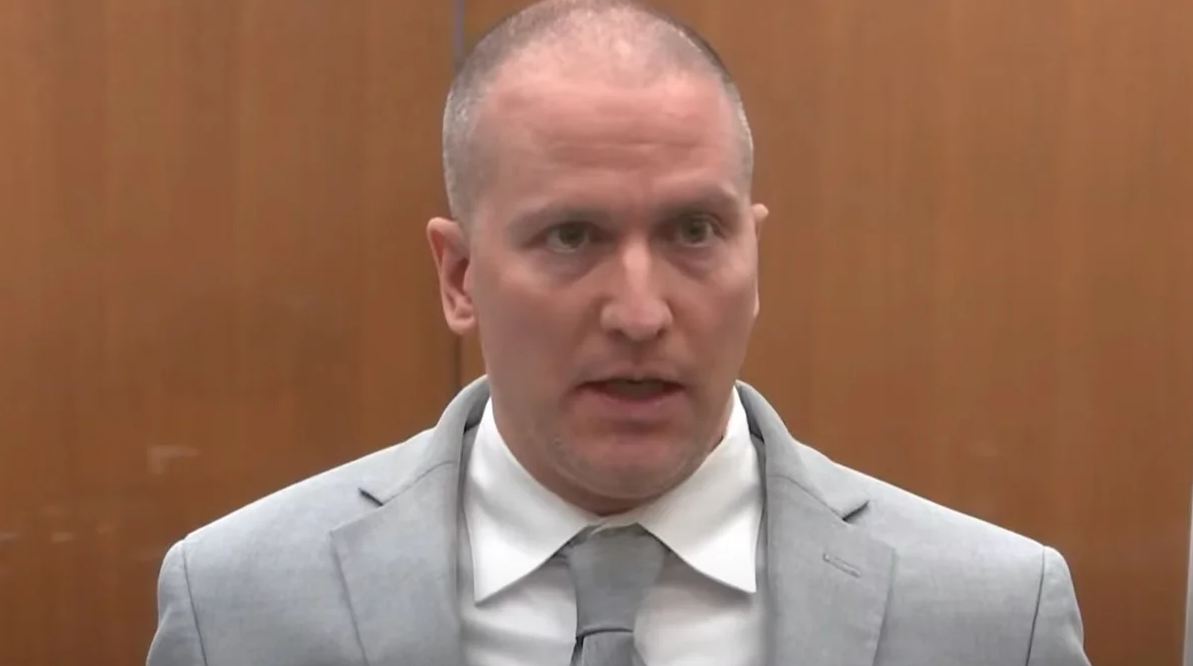The Supreme Court has made a pivotal decision to deny former Minnesota police officer Derek Chauvin's appeal in the murder case of George Floyd. This decision effectively upholds Chauvin's conviction and his sentence of more than two decades in prison.
Chauvin's legal team argued that his trial in 2021 was held during a tumultuous time of political upheaval and that the jury was influenced by the possibility of further violent riots if Chauvin was acquitted. They claimed that the intense media coverage and rioting surrounding Floyd's death tainted the jury's decision. However, both the Supreme Court and the Minnesota Supreme Court declined to hear the case, standing by the initial verdict.
In a statement, Chauvin's lawyer, William Morhmann, stated, "This criminal trial generated the most amount of pretrial publicity in history. More concerning are the riots which occurred after George Floyd's death, which led the jurors to express concerns for their safety in the event they acquitted Mr. Chauvin." He also noted the heavy security measures taken during the trial, such as barbed wire and National Guard troops.
The former police officer was convicted of second-degree murder, third-degree murder, and second-degree manslaughter in the death of George Floyd on May 25, 2020. Chauvin kneeled on Floyd's neck for nearly 10 minutes, ignoring his pleas of not being able to breathe. The incident sparked nationwide protests and riots against police brutality and racial injustice.
The Supreme Court would rather let an innocent man rot in prison for life than risk being called “racist” by the woke mob!
Today they voted not to even take officer Derek Chauvin’s case, despite the reports showing George Floyd had a lethal cocktail of drugs in his system… pic.twitter.com/Ts5Y4U72Xe
— Matt Wallace (@MattWallace888) November 20, 2023
Hennepin County Judge Peter Cahill sentenced Chauvin to 22.5 years in prison, a long-awaited move of accountability for police officers who use excessive force. However, last week Chauvin filed a motion claiming new evidence that would have cleared him of the charges. He alleges that a pathologist, Dr. William Schaetzel, from Kansas, told him that Floyd died from complications of a rare tumor called paraganglioma, which can cause a fatal surge of adrenaline.
According to Chauvin, Dr. Schaetzel had reviewed the autopsy reports but did not examine Floyd's body. The former officer claims that this evidence would have swayed the jury's decision and that he would not have pleaded guilty if he had known about the pathologist's theory earlier.
Chauvin's motion requests the judge to overturn his conviction and order a new trial, or at least hold a hearing to present the new evidence. He argues that no jury would have convicted him if they had heard the pathologist's testimony.
George Floyd's death sparked nationwide outrage and protests, with many calling for police reform and an end to systemic racism in the criminal justice system, particularly in regards to Black communities. The decision to uphold Chauvin's conviction is seen as a significant step towards racial justice and accountability for police officers.
It remains to be seen how Chauvin's new evidence claim will affect his case and whether it will be allowed to proceed. In the meantime, the country continues to grapple with these systemic issues and work towards change and justice for all.

